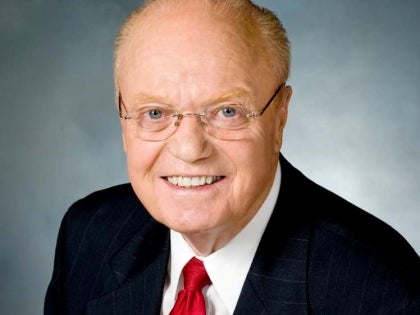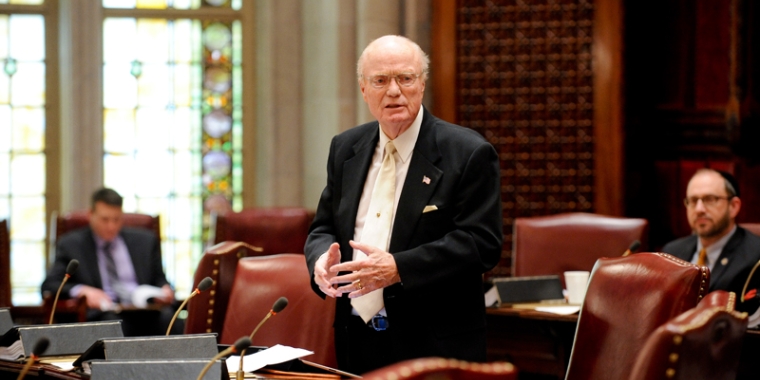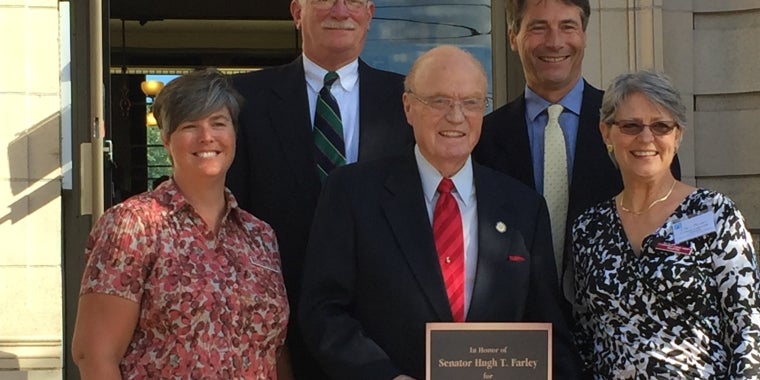
SEN. FARLEY REPORTS 2014-15 BUDGET EXPANDS ACCESS TO QUALITY HEALTH CARE, INCREASES EPIC FOR SENIORS

State Senator Hugh T. Farley (R, C, I – Schenectady) reported the New York State Senate passed a 2014-15 state budget that will provide record support for a wide array of lifesaving health care services in communities across the state. Among the provisions in the budget are billions of dollars to ensure quality hospitals and nursing home facilities, funding for women’s and family health initiatives, a significantly expanded EPIC program to help our seniors afford their prescription medications, and new legislation to help eliminate “surprise” out-of-network medical bills.
Investments in Health Care Facilities and Patient Care
The budget makes a $1.2 billion capital investment over seven years for the restructuring of health care facilities such as hospitals, clinics and nursing homes. This is in addition to the expected $8 billion in funds from the federal Medicaid waiver announced in February for transformative projects to improve the health care system. To improve medical technology, the budget also includes $95 million to create a statewide electronic medical record system. These and other investments will enhance the quality, financial viability and efficiency of New York’s health care delivery system to ensure that New Yorkers continue to have access to quality health care services.
Expanding EPIC and Support for Seniors:
New York’s outstanding Elderly Pharmaceutical Insurance Coverage program will be expanded to cover the prescription drug needs of more New Yorkers. Income eligibility is expanded from $35,000 to $75,000 for singles and from $50,000 to $100,000 for married seniors. Approximately $4.1 million in increased funding will be used to help expand the program by 10 percent – providing coverage to an additional 25,000 senior citizens across New York.
Other funding initiatives that help support New York’s senior citizens include:
- $5 million for the Community Services for the Elderly Program such as transportation assistance, respite care, and home delivery meals;
- $875,000 for Elder Health / Alzheimer’s Programs;
- $200,000 for the Lifespan for Elderly Abuse, Education and Outreach;
- $86,000 for the New York Foundation for Seniors Home Sharing and Respite; and
- $31,500 for the Senior Action Council Hotline.
Substantial Funding for Health Initiatives
The new budget includes funding for a number of important individual and family health initiatives including:
- $25.3 million for Cancer Services Programs;
- $26.3 million for Nutritional Information for Women, Infants and Children;
- $2.3 million for the Prenatal Care Program;
- $4.5 million for Maternal and Child Health;
- $550,000 for Women’s Health Services;
- $533,300 for the Adelphi Breast Cancer Support Program;
- $1.8 million for the Prenatal and Postpartum Home Visitation Program;
- $34,700 for the Safe Motherhood Initiative;
- $10.6 million for Adolescent Pregnancy Prevention;
- $1.8 million in increased funding for Rape Crisis Centers, bringing total funding to $3.6 million;
- $5 million in additional funding for the Spinal Cord Injury Research Board, bringing the total funding to $7 million;
- An additional $2.5 million for the Doctors Across New York Program;
- $2.45 million for initiatives to provide prevention, treatment and addiction services to address the growing problems of heroin and opioid abuse; and
- $500,000 for Lyme and tick-borne disease initiatives.
Protecting Consumers from Unexpected Out-of-Network Medical Bills
The budget includes legislation to protect consumers from unexpected medical bills from out-of-network physicians. A new dispute resolution process, network adequacy requirements, claim submission requirements, and improved disclosure by insurers will help consumers better navigate the insurance process and reduce the incidence of costly, surprise bills.
Safe Patient Handling Act
Nurses and other direct patient care workers in health care facilities often use their bodies to move and lift patients and have among the highest rates of on-the-job injuries, as well as potential injuries to patients. The budget includes measures to help prevent these injuries through safe patient handling. Health care facilities must establish a safe patient handling program and conduct an annual performance evaluation of the program. The Department of Financial Services will also establish rules permitting facilities to obtain a reduced worker’s compensation rate for implementing these programs.
Donate Life Registry
To encourage more people to save lives through organ and tissue donation, the budget includes changes to the operation of the state’s Donate Life Registry. It requires the Commissioners of Health, DMV and Board of Elections to examine steps that might be taken by the state agencies to enhance the registries’ performance and requires the selection of a not-for-profit organization experienced in working with procurement organizations and affiliated with New York’s donation community to permanently operate and promote the Registry.
Early Intervention Payments
The state budget provides $163 million for early intervention programs, which offer a variety of therapeutic and support services to eligible infants and toddlers with disabilities and their families. The Senate Republican Conference also succeeded in obtaining an allocation of $3.9 million in this budget for state payments to early intervention providers. The funding goes towards the providers’ unpaid claims from April 1, 2013 to June 30, 2013, when the state’s early intervention program first began requiring insurance claims to be completed before the state and local shares would be paid.



